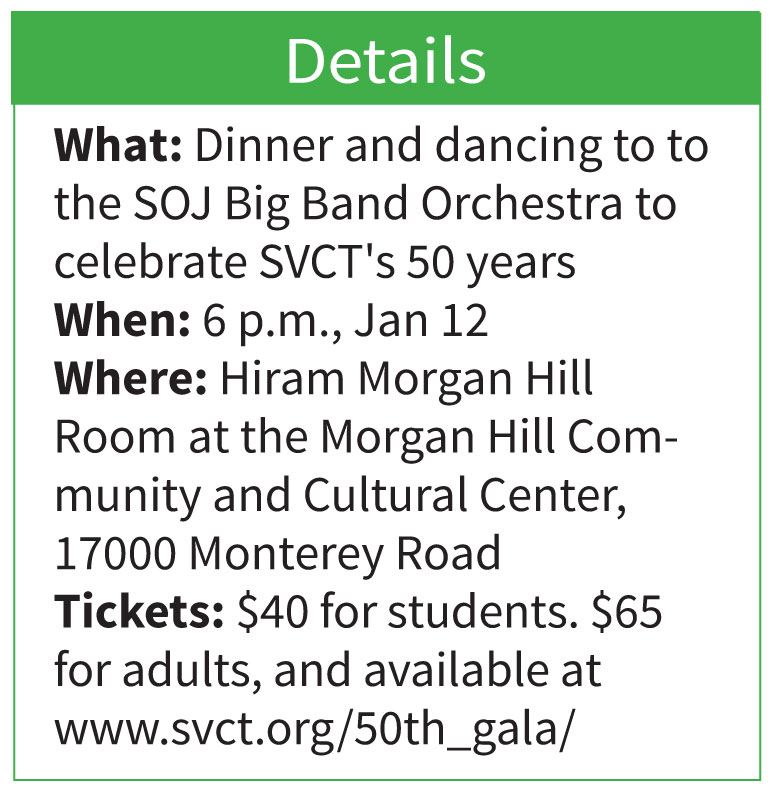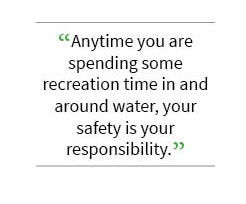Published in the March 13 – 26, 2019 issue of Morgan Hill Life

Chamber Board Chair Rich Firato, Morgan Hill Life editor Robert Airoldi, Morgan Hill Life publisher Marty Cheek, and Gilroy Life ad rep Jessica Ewing after the 2019 Small Business of the Year Award presentation. Photo by Tiago Moules.
“What kind of world do you want?”

During the video-recording session, Cheek told the third-graders a story about what life was like for people in Berlin during the 1930s. His mother, Gisela, was born in that cosmopolitan German city in 1926. She saw the rise of Adolf Hitler and how the evil of fascism took over a society.
The seeds of hatred and violence were spread in the minds of the Germans through the Nazi party’s iron-tight control of the newspapers, magazines, radio stations and cinema. Cheek told the kids that as a child about their age, Gisela briefly met at a Youth League event the mastermind of Nazi propaganda, Joseph Goebbels.

Cheek told the students that his grandfather, Kurt Druckler, the owner of a corner tobacco shop in Berlin, had in 1932 voted for Hitler as president. Kurt had hoped that, if elected, Hitler would return Germany to its former greatness as a nation. His wife told him he was a fool, that the Nazis would destroy the German people.
History, obviously, proved Kurt wrong. He lost his only son, Gerhard, in the war, dying as a drafted German soldier in the North Africa desert.
The light of goodness can still glow in dark days. Perhaps as Kurt’s attempt at atonement, in the city that was the heart of Nazi power he and his wife and another couple teamed together to hide a Jewish family in a basement. “I’m very proud of them,” Cheek told the Barrett students. “That took a lot of courage. If they got found out, if what they did was found out by the Nazis, they probably would have been executed very quickly. They never told my mom until after the war because they didn’t want her to be part of that.”
The publisher ended his talk by telling the third-graders that it’s vital for everyone to protect the free press so we can prevent another time where dictators rise in the world, including potentially here in the United States.
He wanted them to grow up in a land of liberty where our constitutional rights are protected by reporters and journalists putting a spotlight on political corruption. “We lose our free press, we lose our freedoms. We lose our freedoms, we lose America,” he told them.
After his talk, with help from their teacher he worked with the children in developing their ideas on what kind of world they wanted. If you watch the video, you’ll see the students describe what they want for their future:
- “We want a world with good education.”
- “A world where everybody lives in peace and harmony.”
- “A world where everybody respects each other.”
- “A world where everybody is healthy.”
- “A world where everybody is safe from crime.”
- “A world where everybody is united.”
- “A world where everybody protects the environment and animals.”
- “We want a world where everybody has equal rights.”
- “A world where stuff is affordable.”
- “A world where everybody has fun together.”
The young people will face many challenges in the coming decades as they grow up into the leaders of the South Valley. Working together, we can help them achieve a better world. The key is for us to be smarter than our problems. An important way to gaining those goals is to enhance all the forms of the media — news, marketing, education resources, social media, and the arts and entertainment — and thus enhance the quality of life for all people on our planet.
At the end of the video, the students gathered with Mrs. Meyers, looked at the camera, and asked the viewers with their robust voices: “What kind of world do you want?” It’s an important question for all of us to consider.
What kind of world do we grown-ups want to give these children — and all children — as a legacy? Our future survival as humanity starts now.






